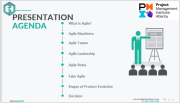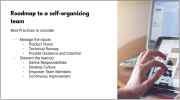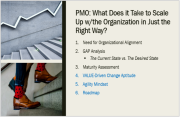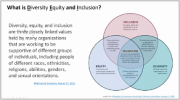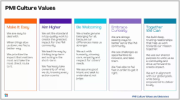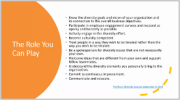Written by: Alex Leonard, PMP
Presentation Overview 
On March 21, 2023, the Agile Forum of the PMI Atlanta Chapter hosted the “There is Nothing Wrong with Being Agile or Everything is Wrong with Being Agile” Special Interest Forum Event as presented by Varun Anand. As an instructor and practitioner in Agile methodologies, Varun utilized his knowledge and understanding of the Agile mindset to discuss when to use and when not to use Agile in practice.
Throughout the course of a 1-hour presentation, Varun emphasized many virtues of the Agile mindset. He explained the importance of embracing change, being flexible, and being adaptable. Failure to adapt to varying circumstances can be catastrophic for organizations because in many cases, when they resist change, they risk becoming obsolete.
On the other side, Varun discussed the world’s perception of what it means to be Agile. He explained how organizations say they are Agile, without truly knowing what that means in practice. They are essentially “fake” Agile.
Varun’s presentation culminated into the ultimate proclamation that while having an Agile mindset is especially important, there is a right time and a wrong time to be Agile. The important part is knowing when it’s the right time to be Agile.
Takeaways
Sometimes, Agile is not always the best approach. It is more important to have a good understanding of multiple methodologies so you can utilize the best fit for the specific phase or situation in a project. Other key points include:
- Having an Agile mindset is essential for embracing change
- An organization is not sustainable if they are not adaptable
- Many organizations say they are Agile but do not truly maintain an Agile mindset
Next Event
Join us at the next PMI Atlanta Chapter Agile forum on April 18, 2023
Keynote Presentation: "Incorporating Agility into Your Waterfall Projects" by Amber Chandler, SOP Evolution LLC
Register at www.pmiatlanta.org/events/event-calendar


